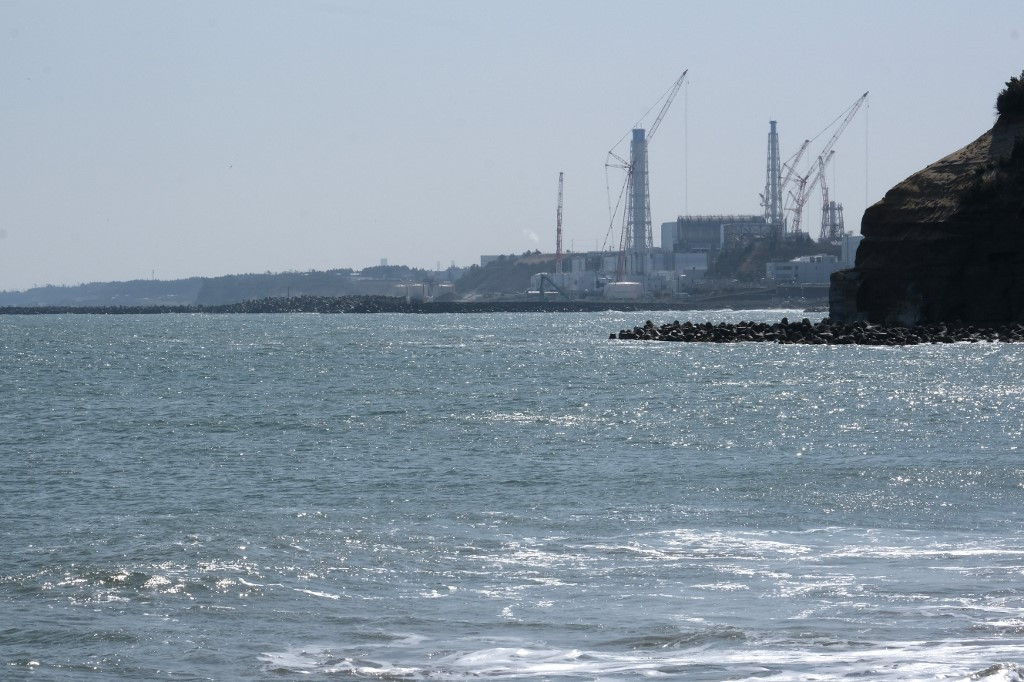Popular Reads
Top Results
Can't find what you're looking for?
View all search resultsPopular Reads
Top Results
Can't find what you're looking for?
View all search resultsJapan to release contaminated Fukushima water into sea
The move, more than a decade after the nuclear disaster, will deal another blow to the fishing industry in Fukushima, which has opposed such a step for years.
Change text size
Gift Premium Articles
to Anyone
J
apan plans to release into the sea more than 1 million tonnes of contaminated water from the destroyed Fukushima nuclear station, the government said on Tuesday, a decision that is likely to anger neighbours such as South Korea.
The move, more than a decade after the nuclear disaster, will deal another blow to the fishing industry in Fukushima, which has opposed such a step for years.
The work to release the water will begin in about two years, the government said, quoted by Reuters.
The United States on Monday showed understanding of the Japanese government's decision to release treated radioactive water building up at the crippled Fukushima Daiichi nuclear power plant into the sea.
Noting that the United States is aware that the Japanese government examined several options related to the management of the treated water, the State Department said Japan has been "transparent about its decision" and "appears to have adopted an approach in accordance with globally accepted nuclear safety standards."
The United States looks forward to Japan's "continued coordination and communication as it monitors the effectiveness of this approach," the department added in a statement, quoted by Kyodo News.
A high-level South Korean government official meanwhile said Tuesday that Seoul "firmly opposes" Japan's decision to release into the sea treated radioactive water that has accumulated at the crippled Fukushima Daiichi nuclear power plant.
The South Korean government held an emergency meeting of related ministries in the morning to discuss responses to the Japanese decision.
The Chinese Foreign Ministry said Monday it formally relayed its "serious concern" to Japan following media reports the government was set to make the decision, urging Tokyo not to "overlook or shrug off" criticism from the international community.
A spokesman for the South Korean Foreign Ministry said releasing the tritiated water would "directly and indirectly affect the safety of the people and the neighboring environment."
China and South Korea are among 15 countries and regions that continue to restrict imports of Japanese agricultural and fishery products due to the Fukushima disaster.
Prime Minister Yoshihide Suga met with members of his Cabinet including industry minister Hiroshi Kajiyama to formalize the decision, which comes a decade after a massive earthquake and tsunami triggered a triple meltdown in March 2011.
Water pumped into the ruined reactors at the Fukushima plant to cool the melted fuel, mixed with rain and groundwater that has also been contaminated, is treated using an advanced liquid processing system, or ALPS.
The process removes most radioactive materials including strontium and cesium but leaves behind tritium, which poses little risk to human health in low concentration. The water is being stored in tanks on the plant's premises -- more than 1.25 million tons in total.
Plant operator Tokyo Electric Power Company Holdings expects to run out of storage capacity as early as fall next year, and the government had been looking for ways to safely dispose of the tritiated water.
"Disposing of the treated water is an unavoidable issue in decommissioning the Fukushima Daiichi plant," Suga said at the meeting, adding the plan will be implemented "while ensuring that safety standards are cleared by a wide margin and firm steps are taken to prevent reputational damage."
A Ministry of Economy, Trade and Industry subcommittee concluded in February 2020 that releasing the tritiated water into the sea and evaporating it were both realistic options, with the former more technically feasible.
The International Atomic Energy Agency has backed the move, with Director General Rafael Grossi saying it is scientifically sound and in line with standard practice in the nuclear industry around the world.
According to the government's plan, the tritium will be diluted to 1,500 becquerels per liter, one-40th of the concentration permitted under Japanese safety standards and one-seventh of the World Health Organization's guideline for drinking water.
Suga said the IAEA and other third parties will be involved in the plan, ensuring it is carried out with transparency.
It will take around two years until the tritiated water is actually released into the sea due to the need to build new facilities and conduct safety screenings.










